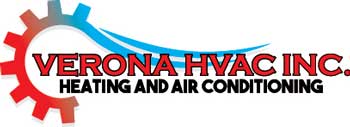
We spend a lot of time in our homes. As a matter of fact, the Environmental Protection Agency (EPA) has estimated being within a building makes up 90% of our time. However, the EPA also says your indoor air can be three to five times dirtier than outside your home.
That’s due to the fact our homes are securely sealed to boost energy efficiency. While this is good for your heating and cooling costs, it’s not so great if you’re a part of the 40% of the population with respiratory allergies.
When outdoor ventilation is restricted, pollutants including dust and volatile organic compounds (VOCs) can get stuck. As a consequence, these pollutants could irritate your allergies.
You can improve your indoor air quality with crisp air and usual cleaning and vacuuming. But if you’re still having issues with symptoms while you’re at your residence, an air purifier could be able to help.
While it can’t get rid of pollutants that have landed on your furniture or carpet, it could help purify the air moving across your residence.
And air purification has also been scientifically proven to help lessen some allergic symptoms, according to the American College of Allergy, Asthma and Immunology. It could also be helpful if you or a family member has lung issues, such as emphysema or COPD.
There are two models, a portable air purifier or a whole-home air purifier. We’ll discuss the advantages so you can learn what’s right for your residence.
Whole-House Air Purifier vs. Portable Air Purifiers
A portable air purifier is for a single room. A whole-house air purifier accompanies your home comfort unit to clean your complete residence. Some models can work by themselves when your heating and cooling equipment isn’t on.
What’s the Best Air Purifier for Allergies?
Go after a model with a High Efficiency Particulate Air (HEPA) filter. HEPA filters are used in hospitals and provide the most comprehensive filtration you can get, as they catch 99.97% of particles in the air.
HEPA filters are even more powerful when installed with an ultraviolet (UV) germicidal light. This powerful mixture can destroy dust, dander, pollen and mold, all of which are common allergens. For the best in air purification, think over a system that also has a carbon-based filter to eliminate household vapors.
Avoid using an air purifier that makes ozone, which is the primary component in smog. The EPA warns ozone could worsen respiratory issues, even when released at minor settings.
The Allergy and Asthma Foundation of America has compiled a list of questions to ask when getting an air purifier.
- What can this purifier extract from the air? What doesn’t it take out?
- What’s its clean air delivery rate? (A higher figure means air will be cleaned faster.)
- How frequently does the filter or UV bulb need to be changed]? Can I finish that without help?
- How much do new filters or bulbs cost?
How to Reduce Seasonal Allergy Symptoms
Want to get the {top|most excellent|best] outcome from your new air purification system? The Mayo Clinic recommends taking other measures to reduce your exposure to problems that can cause seasonal allergies.
- Stay indoors and keep windows and doors closed when pollen counts are heightened.
- Have other household members mow the lawn or pull weeds, since these jobs can aggravate symptoms. If you must do these chores on your own, you may want to consider using a pollen mask. You should also shower without delay and put on new clothes once you’re finished.
- Avoid drying laundry outdoors.
- Run the AC while indoors or while in the car. Consider adding a high efficiency air filter in your residence’s home comfort unit.
- Even out your residence’s humidity percentage with a whole-house dehumidifier.
- Hardwood, tile or linoleum are the best flooring types for reducing indoor allergens. If your house has carpet, add a HEPA filter on your vacuum cleaner.
Let Our Pros Manage Your Indoor Air Quality Requirements
Prepared to move forward with adding a whole-house air purifier? Give our professionals a call at 661-475-1042 or contact us online to schedule an appointment. We’ll help you choose the best system for your family and budget.
